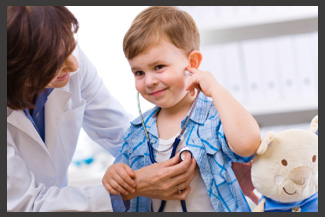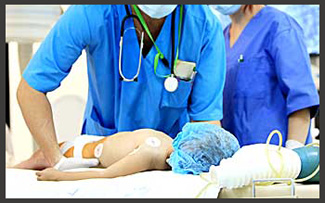|
||||||||||||||||||||
|
||||||||||||||||||||
     |
||||||||||||||||||||
| Child Emergency | ||||||||||||||||||||
 The Children’s Emergency provides initial evaluation, stabilisation and treatment to acutely ill or injured infants and children. The Children’s Emergency provides initial evaluation, stabilisation and treatment to acutely ill or injured infants and children.With our doctors and nurses trained in paediatric emergency medicine, you can be assured that we are ready and available to provide safe and immediate services to your child. Range of Services:
If you think it’s urgent, take your child immediately to the Emergency Department.  Inside the Emergency Department Inside the Emergency Department
Waiting : You and your child will be asked to take a seat in the waiting room until you are called to see a doctor. Please be patient. Your child's comfort and safety is very important to us. What to bring to Emergency
The Children’s Emergency waiting room can become quite crowded. If possible, try to ease this crowding by leaving your child’s siblings and other relatives at home. If possible, call a relative or neighbour to take care of your other children. Do not bring pets. Sick Days & Emergency Care - What do you do with the kids when you are working? What do you do with the kids when they are sick? It is important to think about a course of action in this situation before it arises and line up help as a back up. Figure Out a Solution in Advance Take turns staying home with sick children when necessary.  You may also be lucky enough to have parents or in-laws living in the area. You will be surprised at how wonderfully supportive they can be. If possible, don't call on their help for the whole day, maybe just a few hours to handle the important matters at work and then work from home if necessary. You may also be lucky enough to have parents or in-laws living in the area. You will be surprised at how wonderfully supportive they can be. If possible, don't call on their help for the whole day, maybe just a few hours to handle the important matters at work and then work from home if necessary. Talk to neighbours who are stay-at-home mums or family members. You may be pleasantly surprised how many people are willing to help out in this situation. Split the Day with Your Partner Another alternative when children are sick is to split the day. You can go to work in the morning, from 7:30 until 12:30, come home, and then your partner can go in and work from 2:00 until 8:00. Save Your Sick Days Try to save your sick days so that you don't have to take unpaid days although you can receive carer's leave (taken out of your sick leave) if you need to take time off to look after a sick family member – ask your HR department about what arrangements can be made with flexible leave practices. |
||||||||||||||||||||
New Born Baby Care I Behaviour Counselling I Development Assessment I Doctors in Saltlake I Doctors in Kolkata
Foreign Returns Doctor I Make an Appointment I Location Map
Site Powered By : www.calcuttayellowpages.com
